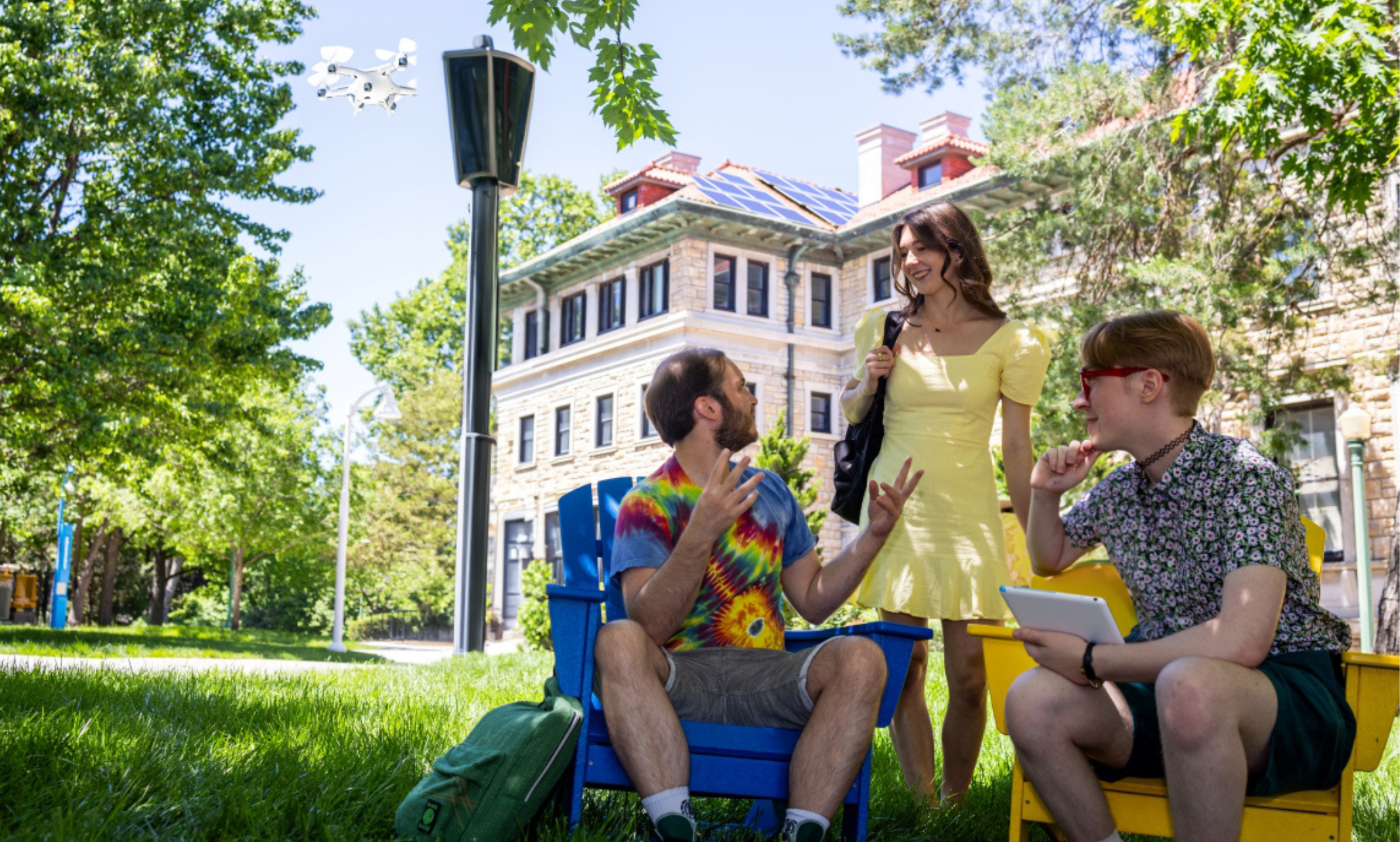Kansas City’s research university is known for being innovative and future-forward. As artificial intelligence engrains itself into our everyday lives, many faculty have been on the leading edge of using this technology in the classroom and in their respective fields. Here’s what professors campuswide are doing to keep up with AI.
School of Science and Engineering
ZhiQiang Chen, Ph.D. is one of the founding chair members of a new American Society of Civil Engineers national committee looking at AI in the classroom. The committee is working to answer the global pressing needs of adopting generative AI into civil engineering classrooms.
In Fall 2023, he developed the first civil engineering AI course offered at UMKC titled “Intro to AI for Natural and Built Environment Applications.”
School of Medicine
Sara Gardner (B.L.A. ’01, M.D. ‘02) is looking at how to incorporate appropriate use of AI in patient care and education.
“Clinically, as our faculty and institutions have adapted and learned more, we understand the utility of AI to recognize small, incremental changes in our patients that could lead to better treatment strategies that ultimately improve patient outcomes,” Gardner said. “Our graduates will likely encounter this technology very early in their post-graduate training, so we are looking for opportunities for them to be exposed to, and learn to respond to, this data on clinical clerkships. Our students also need to understand and become adept at querying these databases, whether that is generating clinical documentation to a complex interpretation of test results specific to the personal characteristics of your patient, to better understand how to interpret these results for their individual patients.”
School of Nursing and Health Studies
Jim Spence (B.A. ’95, M.P.A. ’02, B.S.N. ‘09) interim associate dean for academic affairs, has presented at nursing conferences on AI in nursing education.
Spence is also encouraging both faculty and students to utilize AI in the classroom, whether that is for developing test questions or patient case studies. For patient case studies, AI is able to generate details of the patient’s social history such as name, gender, age, occupation and physical history from lab tests such as neurological assessments and cardiac testing.
School of Humanities and Social Sciences
Antonio Byrd, Ph.D., serves on the Modern Language Association and Conference on College Composition and Communication Joint Task on Artificial Intelligence and Writing, a national task force that discusses humanities interventions in AI and higher education. One such example is creating guidelines for AI policies to honor students' linguist diversity and autonomy.
School of Education, Social Work and Psychological Sciences
Jake Marszalek, Ph.D., interim associate dean and professor of psychology, is investigating the potential outcomes of using AI for learning and education.
Marszalek is a co-investigator on a multidisciplinary grant from Unanimous AI to investigate educational outcomes for a software that enables peer-to-peer collaboration while protecting data privacy and security.
Henry W. Bloch School of Management
Larry Wigger, Ph.D., is currently exploring humanity’s role in increasingly automated workplaces due to AI. With AI automation threatening to displace the lowest-skilled workers, given their predominantly routine tasks, tomorrow’s workforce needs a better way to gain the critical experience to manage and lead. Wigger’s research focuses on how future workers should be equipped with critical thinking skills to employ AI ethically, minimizing negative effects.
School of Law
School of Law professor Ryan Copus, J.D., encourages students to use large language models when writing papers, exploring ideas or completing any other assignments. Copus teaches a course titled “Data, Decisions and Justice,” where he introduces the idea of technically and ethically responsible ways to apply the power of AI to regulate legal decision-making. In this course, students get to code and build their own machine learning model as well as engage in AI research literature.

